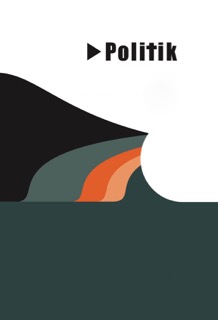Swedish Advocacy Think Tanks as News Sources and Agenda- Setters
DOI:
https://doi.org/10.7146/politik.v19i1.27395Resumé
The topic of this paper is the media visibility of Swedish advocacy think tanks, as measured by references to these think tanks in leading Swedish print newspapers. Advocacy think tanks are, in contrast with more research-oriented think tanks, characterised by their outspoken ideological and political agenda. In public debates, they often have a partisan role. Four research questions will be answered: How often are these advocacy think tanks referred to in the news? How important are they as commentators and opinion-makers? How are they presented as sources in the news? What is the relative strength of market-liberal and right-wing think tanks versus red/green think tanks, in terms of media representation and agenda-setting?
The selection criteria, type of newspapers, and time period used in this study of Swedish advocacy think tanks have been coordinated with parallel, national think tank studies by media researchers in Denmark, Norway, and Finland. Several changes in the think tank landscape took place after the turn of the millennium, which motivated us to select two full newspaper years, 2006 and 2013, to better cover these developments. To gain a deeper understanding of the think tanks’ backgrounds, their cooperation with other think tanks, and their media strategies, we conducted background interviews with representatives from four advocacy think tanks. We met with Karin Svanborg-Sjövall, CEO of Timbro; Boa Ruthström, CEO of Arena Idé, and Maja Dahl, communication manager of Arena Idé; Mattias Goldmann, CEO of Fores; and Daniel Suhonen, the leader of Katalys.
Referencer
Bjerke, P (2015) Tankesmier på norsk: hjemmelaget import, i Ihlen, Ø., Skoberbø, E. & Allern, S., Makt, medier og politikk. Oslo: Universitetsforlaget.
Blach-Ørsten, M. & Kristensen, NN (2016) ’Think Tanks in Denmark – Media Visibility and Network Relations’, Politik.
Dinan, W & Miller, D (2007) Thinker, faker, spinner, spy: Corporate PR and the assault on democracy. London: Pluto Press.
Djelic, M-L (2014) Spreading Ideas to Change the World: Inventing and Institutionalizing the Neoliberal Think Tank. In Garsten, C. & Sörbom, A. (Eds.), Political Affair: Bridging
Markets and Politics. Cheltenham, UK: Edward Elgar (forthcoming). Available at SSRN: http://ssrn.com/abstract=2492010.
Gandy, OH (1982) Beyond agenda setting: Information subsidies and public policy. New York: Ablex Publishing Company.
Garsten, C (2013) All about ties: Think tanks and the economy of connections. In Garsten C. & Nyqvist, A. (Eds.), Organisational anthropology: Doing Ethnography in and among Complex Organisations. London: PlutoPress, 139−154.
Lindström, S (2012) Tankesmedjor 2012: Söker makt over samhällsidéerna. Stockholm: Arenagruppens Vänner.
McGann, JB, & Weaver, RK (Eds.). (2000) Think tanks & civil societies: Catalysts for ideas and action. New Brunswick, NJ: Transaction.
McKewon, E (2012) Talking points ammo: The use of neoliberal think tank fantasy themes to delegetimise scientific knowledge of climate change in Australian newspapers. Journalism Studies, 13(2), 277–297.
Miller, D & Dinan, W (2008) A century of spin: How public relations became the cutting edge of corporate power. London: Pluto Press.
Nord, L, & Stúr, E (2009) Tyckandets tid: Journalistik kommentar, valrörelse. Stockholm: Sim(O).
Plehwe, D (2007) A Global Knowledge Bank? The World-Bank and Bottom-Up Efforts to Reinforce Neoliberal Development Perspectives in the Post-Washington Consensus Era. Globalizations 4(4), 514−528.
Pollack, E (2009) Extra, extra. Hon sågas, hon avgår. In S. Allern & E. Pollack, Skandalenes markedsplass. Politikk, moral og mediedrev (pp. 99-120). Bergen: Fagbokforlaget.
Schlesinger, P (2009) Creativity and the experts: New labour, think tanks and the policy process. International Journal of Press/Politics, 14(1), 3–20.
Stone, D (1996) Capturing the political imagination: Think tanks and the policy process. London & Portland, OR: Frank Cass.
Stone, D (2004) Introduction: Think tanks, policy advice and governance. In D. Stone & A. Denham (Eds.), Think tank traditions: Policy research and the politics of ideas (pp. 1–16). Manchester: Manchester University Press.
Stone, D & Garnett, M. (1998) Introduction: The politics of ideas. In D. Stone, A. Denham & A. Garnett (Eds.), Think tanks across nations: A comparative approach (pp. 1–20). Manchester:
Manchester University Press.
Stål, H & Tillegård, J. (2005) Sotiga bjässar som går lös på sina funderinmgar med väldiga släggor. En nätverks- och diskursanalys av tankesmedjorna Timbro och Arenagruppen.
Examenuppsats inom marknadsföring och företagande. Handelshøgskolan, Stockholm.
Thunert, M (2004) Think tanks in Germany. In D. Stone & A. Denham (Eds.), Think tank traditions: Policy research and the politics of ideas (pp. 71–88). Manchester: Manchester University
Press.
Weaver, RK (1989) The changing world of think tanks. PS: Political Science and Politics, September, 563–578.
Downloads
Publiceret
Citation/Eksport
Nummer
Sektion
Licens
Forfattere, der publicerer deres værker via dette tidsskrift, accepterer følgende vilkår:
- Forfattere bevarer deres ophavsret og giver tidsskriftet ret til første publicering, samtidigt med at værket er omfattet af en Creative Commons Attribution-licens, der giver andre ret til at dele værket med en anerkendelse af værkets forfatter og første publicering i nærværende tidsskrift.
- Forfattere kan indgå flere separate kontraktlige aftaler om ikke-eksklusiv distribution af tidsskriftets publicerede version af værket (f.eks. sende det til et institutionslager eller udgive det i en bog), med en anerkendelse af værkets første publicering i nærværende tidsskrift.
- Forfattere har ret til og opfordres til at publicere deres værker online (f.eks. i institutionslagre eller på deres websted) forud for og under manuskriptprocessen, da dette kan føre til produktive udvekslinger, samt tidligere og større citater fra publicerede værker (se The Effect of Open Access).

